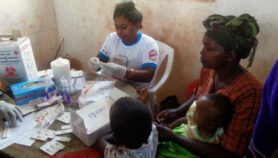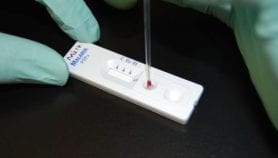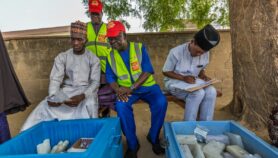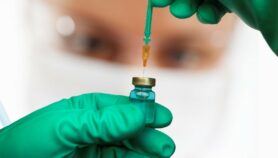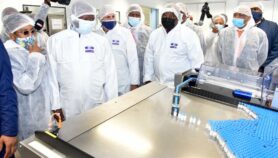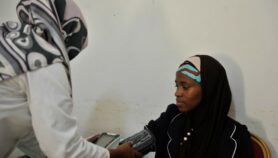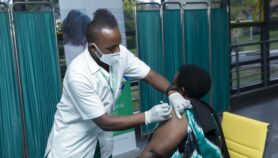18/05/22
Rapid COVID vaccine rollout ‘cost-effective’ in Africa
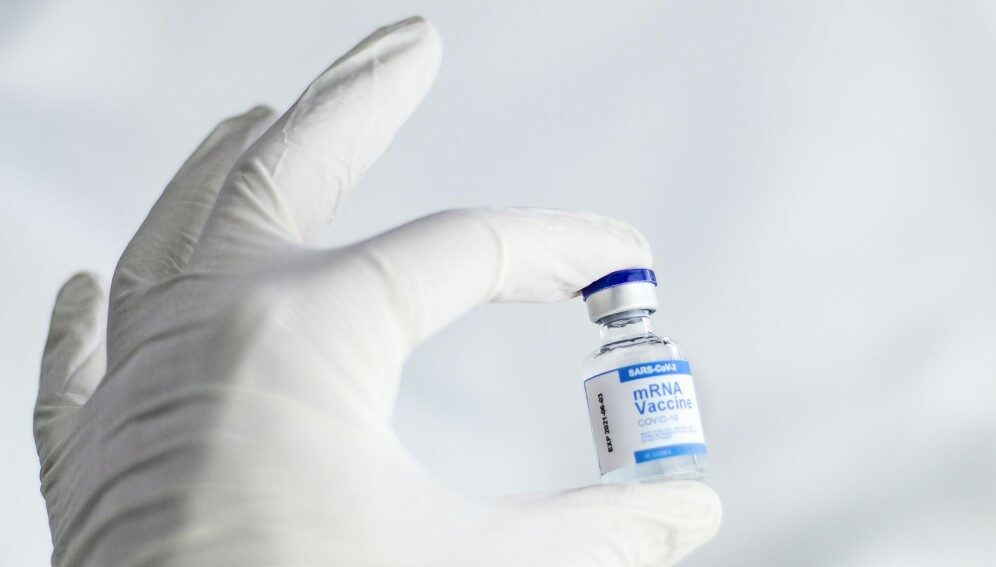
By: Gilbert Nakweya
Send to a friend
The details you provide on this page will not be used to send unsolicited email, and will not be sold to a 3rd party. See privacy policy.
[NAIROBI] The approval of COVID-19 vaccines by the WHO more than a year led to mass vaccination campaigns in many parts of the world as countries scrambled to control the virus and embark on economic recovery interventions.
But this has not been the scenario in Africa. In my motherland, the big question for governments in Africa has been: where do we get funds to buy vaccine doses?
As countries in Sub-Saharan Africa grapple with vaccination efforts amid constrained resources, relying on donations from high-income nations, there is a need to get cost-effective approaches to vaccination interventions in Africa.
“We therefore need to optimise the use of resources,” said Edwine Barasa, the director of the Nairobi programme of the KEMRI-Wellcome Trust Research Programme, at a meeting in Kenya last week (13 May) during which experts shared new research analysis that examined the cost-effectiveness of COVID-19 vaccinations in Kenya.
“Countries such as those in Sub-Saharan Africa with large segments of unvaccinated populations must conduct targeted vaccinations to get value for money and save lives.”
Gilbert Nakweya
The meeting heard how speeding up vaccine rollout to vulnerable populations, the elderly and those living with underlying medical conditions such as cancer is the most cost-effective approach in resource-poor countries, especially in Sub-Saharan Africa.
The researchers from KEMRI and the Africa Centres for Disease Control and Prevention (Africa CDC) found that targeting these groups reduces the risk of death and severe disease and promotes high natural immunity because of previous exposure.
In their presentations, the researchers argued that Africa has a small proportion of older people, which lowers the risk for severe disease and deaths, making targeted vaccinations a cost-effective strategy.
For example, in Kenya, 30 per cent rapid vaccination rollout (done in six months) targeting people 50 years and above could avert 3.9 million new infections and 943 deaths, while 70 per cent rapid vaccination that covers all adults over 18 years old could avert a further 50,000 infections and a further 161 deaths.
Similarly, a 30 per cent rapid vaccination rollout targeting people aged 50 was below the study’s cost-effective threshold of US$919 making it cost-effective. Meanwhile a 70 per cent rollout targeting the same group fell way over the study’s cost-effective threshold at US$44,250.

Cameline Nafula, a research scientist at the KEMRI-Wellcome Trust Research Programme, said that addressing vaccine equity at the global level would have helped Africa access vaccine doses early.
Barasa and colleagues urged African governments to consider the research evidence from their analysis in making decisions for vaccinations against COVID-19. This, they said, will be a cost-effective way of reducing deaths and severe illnesses caused by COVID-19.
For example, as of last month (6 April), only about 16 per cent of Africa’s populations had completed their COVID-19 vaccinations, with less than two per cent of the population receiving boosters, according to the Africa CDC.



As I listened to Barasa, who is also a visiting professor of health economics at the University of Oxford in England, I became convinced that resource-poor countries should take these findings on board as efforts to increase vaccinations against COVID-19 gear up.
Even as new variants emerge, countries such as those in Sub-Saharan Africa with large segments of unvaccinated populations must conduct targeted vaccinations to get value for money and save lives. It would become a game-changer in the fight against COVID-19.
This piece was produced by SciDev.Net’s Sub-Saharan Africa English desk.



